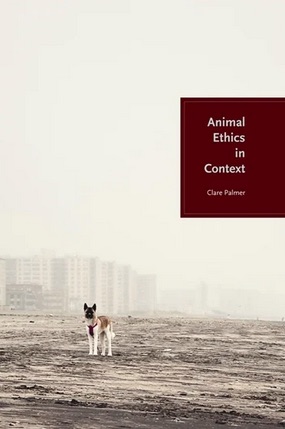It is widely agreed that because animals feel pain we should not make them suffer gratuitously. Some ethical theories go even further: because of the capacities that they possess, animals have the right not to be harmed or killed. These views concern what not to do to animals, but we also face questions about when we should, and should not, assist animals that are hungry or distressed. Should we feed a starving stray kitten? And if so, does this commit us, if we are to be consistent, to feeding wild animals during a hard winter?
In this controversial book, Clare Palmer advances a theory that claims, with respect to assisting animals, that what is owed to one is not necessarily owed to all, even if animals share similar psychological capacities. Context, history, and relation can be critical ethical factors. If animals live independently in the wild, their fate is not any of our moral business. Yet if humans create dependent animals, or destroy their habitats, we may have a responsibility to assist them. Such arguments are familiar in human cases-we think that parents have special obligations to their children, for example, or that some groups owe reparations to others. Palmer develops such relational concerns in the context of wild animals, domesticated animals, and urban scavengers, arguing that different contexts can create different moral relationships.
- Contents
- Acknowledgments
- Introduction
- 1. Animals’ Capacities and Moral Status
- The Idea of Moral Status
- Animal Capacities
- Animal Well-being and Interests
- Animals and Moral Considerability
- The Meaning of Harm and Assistance
- 2. Capacity-Oriented Accounts of Animal Ethics
- Utilitarianism, Context, and Animal Ethics
- Rights, Context, and Animal Ethics
- Capabilities, Context, and Animal Ethics
- 3. Capacities, Contexts, and Relation
- Capacities in Animal Ethics
- The Idea of “Relation”
- Morally Significant Relations in Animal Ethics
- 4. Wildness, Domestication, and the Laissez-faire Intuition
- Wildness and Domestication
- Forms of the LFI
- 5. Developing a New, Relational Approach
- Thinking Through Relational Assistance
- Implications for Forms of the LFI
- Why Domesticated Animals Might Be Close in Morally Relevant Ways
- 6. Past Harms and Special Obligations
- Special Obligations Created by Past Harms
- Voluntarism and Group Responsibility
- 7. Some Problems and Questions
- The Problem of Human/Nature Dualism
- The Problem of Human Assistance
- Is Domestication a Relation That We Should Not Create?
- Does Painless Killing Harm?
- The Problem of Excessive Knowledge
- 8. Puzzling Through Some Cases
- Persisting Harm: Polar Bears and Climate Change
- Suffering in the Wild
- Layered Predation in the Contact Zone: Blue Tits
- Conclusion
- Harming Animals
- Environmental Ethics
- Interface with Alternative Approaches
- Some Final Comments
- Notes
- Works Cited
- Index

